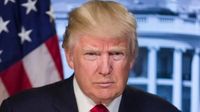U.S. President Donald Trump has signed an executive order aimed at beginning the process of dismantling the U.S. Department of Education. Announced on March 21, 2025, the move has sparked intense debate about the future of educational governance in America.
Speaking at the White House, surrounded by students and teachers, Trump criticized the operation of the Department of Education, asserting it has fostered bureaucracy without delivering results. He stated, "We are going to close this, and close it as soon as possible." The President's aim is to return educational control to individual states rather than having it managed by federal bureaucrats. According to him, since its inception in 1979, the department has received over $3 trillion in subsidies yet yields poor educational outcomes, placing the U.S. low on international education rankings.
While Trump's declaration initiates a significant shift in educational policy, it is essential to note that a total dismantling of the department requires Congressional approval. Caroline Levitt, Trump’s press secretary, acknowledged that complete liquidation is not feasible without Congress's support. Instead, she indicated that a scaled-down version of the department will remain, focused on critical functions such as student loans, grants, civil rights enforcement, and programs aiding students with disabilities.
Levitt noted, "We are significantly reducing the staff and size of the ministry." The White House reported that the Department of Education plans to lay off nearly half of its employees as part of this restructuring. This drastic action has raised alarms among advocates who fear that vulnerable student populations may be harmed.
Trump’s directive echoes his long-held campaign promise to eradicate the Department of Education, a goal he has tried to achieve since his first term in office, where he met resistance from Congress. He has labeled the department as a "big scam," arguing that it hampers education rather than enhances it. The latest executive order is seen as one of many actions aimed at reshaping federal government roles under Trump's administration.
Critics of the plan, including several Democrats, warn that transferring education responsibilities back to state governance could disadvantage students from lower-income families and students with disabilities. The potential loss of federal support could leave these groups without adequate educational resources. Critics argue that as it stands, the Department of Education plays a critical role in ensuring equal access to education.
"The idea is that we will move the Department of Education, we will move education to the states, so that the states, not bureaucrats working in Washington, can run education," Trump stated at the signing ceremony. The President remains resolute in his belief that such decentralization will lead to better management and improved educational outcomes.
The President's announcement came only days after the department’s previous disclosure about impending layoffs, indicating a swift change in the department's direction following Trump's re-entry into the presidency roughly two months ago. Education reform has been a prominent feature of Trump’s political agenda since his first campaign, and this current policy shift highlights his ongoing commitment to redefining education in America.
For now, however, the future of the Department of Education hangs in the balance, contingent on the approval of Congress to effectuate a full closure. As discussions and debates unfold in legislative chambers, the educational landscape remains uncertain. The fate of hundreds of educational programs and the continuity of federal oversight is yet to be determined.
Overall, Trump's order represents a significant pivot in the U.S. educational framework. While he insists that the elimination of a centralized department will enhance student achievement, many are left questioning the ramifications of such a move. As advocates and lawmakers scrutinize the proposals, it is clear that the ongoing conversation about education policy will remain a contentious issue in the political arena.







